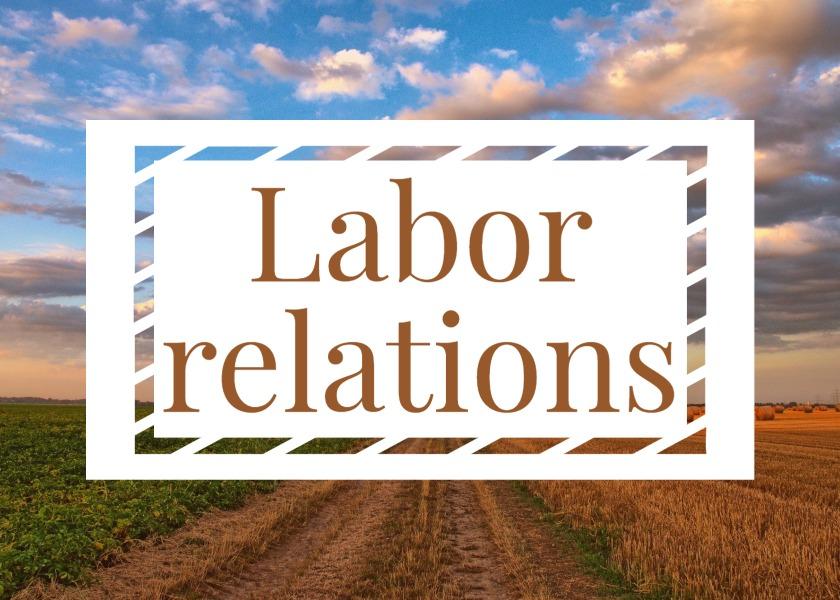Social responsibility programs can pay dividends in better labor relations

This article is part of The Packer's new content series People First: A Spotlight on Social Responsibility. Presented by The Packer and Equitable Food Initiative (EFI), People First will include several weeks of focused content published and promoted across all The Packer platforms. Headlining the program will be a free four-part webinar series that will feature interviews with leaders in the field and cover topics including social compliance, worker voice, recruitment, and The Ethical Charter for Responsible Labor Practices.
Most produce industry leaders think that investments in social responsibility programs can pay dividends with better relationships with workers.
Asked the question, “Do social responsibility programs help prevent labor friction/workplace issues?” nearly all polled by The Packer said properly administered social responsibility program do exactly that, or at least can be a significant factor in helping accomplish that goal.
“Social responsibility programs can certainly work towards alleviating labor and workplace issues, both by ensuring that workers are treated well according to health and safety standards, are compensated fairly and have their concerns addressed, while also providing to the wider company a greater sense of purpose that their job contributes to something greater than profits,” said Steve Roosdahl, vice president of operations for The Oppenheimer Group, Vancouver, British Columbia.
Related: Myths of social compliance tackled in People First seminar
Social responsibility programs can enable better outcomes, some said.
“It’s been shown that collective bargaining is the best way for plantation workers to approach living wage levels,” said Jennie Coleman, president of Equifruit Inc., Drummondville, Quebec.
“Fairtrade standards protect the right of workers to unionize.”
Social responsibility programs are helpful but only if they are really part of the company’s culture, said Brianna Shales, director of marketing for Stemilt Growers, Wenatchee, Wash.
“Having a program in place and making sure it’s a living, evolving part of your culture and operations are different things,” Shales said. “They can help drive accountability and awareness to prevent workplace issues.”
Trevor Terry, chief marketing officer for Stanford-based Kentucky Fresh Harvest, said that while friction is almost inevitable, participation in programs like the Equitable Food Initiative can help to nip workplace issues in the bud by creating effective conflict resolution strategies and communications channels across all levels of an organization as well as encouraging buy-in from the top down and ground up.
While social responsibility programs can help labor relations, one consultant said a social responsibility program may shed light on previously hidden issues.
“Some companies might see more workplace issues than before, but they should carefully consider whether that is a result of an improved complaint mechanism,” said Kieran Ficken, sustainability program manager for Salinas, Calif.-based Measure to Improve LLC.
Related: Industry gives favorable self-score on social responsibility, but point to barriers
“The problem may have always been there, and the employer is only able to see (and solve!) it now.”
Social responsibility programs provide a continuous awareness of available channels for employees to voice or deal with their grievances, said Claire Vasquez, sales and marketing assistant for Windset Farms, Delta, British Columbia.
“They provide avenues to focus on dispute resolution; they empower people to speak up without the fear of retribution.”
If there is some work in adhering to the program, knowing the reasoning behind it give workers a sense of purpose for the extra red tape, said Nell Krsnak, with the Breadroot Natural Foods Cooperative in Rapid City, South Dakota.
“Adhering to such programs can provide a sense of pride in your company, which is great when it comes to worker retention and word-of-mouth marketing,” Krsnak said.
While social responsibility programs can’t prevent labor friction or workplace issues, they can provide a framework that limits these situations and in cases where they still arise, provide team members with a pathway to address and elevate issues to management, said David Bell, chief marketing officer for Houweling’s Group, Delta.
Art Vega, vice president of sales and marketing for Sev-Rend, Collinsville, Ill., said social responsibility efforts like fair trade can make a difference.
“Yes, when you care about the success of your employees, partners and teammates, less friction creates an easier partnership,” Vega said. “I believe in our business world today you can’t just do well, you have to also do good.”
Related: Benefits and return on investment for social responsibility weighed







